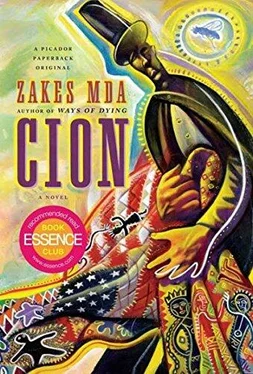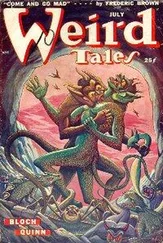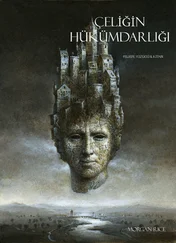He has obviously not given up on me though, and still hopes I will one day redeem myself as his role model and “African shaman.” He still discusses with me some of his hare-brained schemes for the betterment of himself and the rest of mankind. Each day there is a new scheme. I know even as he outlines it that he will not pursue it to its conclusion but will replace it with a new scheme the next day. He dreams these schemes up when he is asleep at night. Some evenings he goes out to have a great time in the bars of Athens with Nathan and comes back in the wee hours of the morning. Even when he is hungover the next morning he will invariably have a new scheme.
Most of these schemes involve some form of dabbling in the occult, which he claims is from his Native American heritage, or on one or two occasions from some African heritage I had never heard of. This does not surprise me one bit because I have observed that people of African descent in America often create African heritages that no one in Africa knows about. There are some who are descendants of kings and queens who existed only in the collective imagination of their oppressed progenitors. I also know that there are many rituals and traditions long dead on the mother continent, that were preserved and transformed and enriched by the slaves to suit their new lives in America. I therefore cannot claim that just because I have no idea of Obed’s African mysticisms they are not drawn from practices that once existed in Africa. And of course Africa is very big and there are many things I do not know about the hundreds of cultures on the continent. Perhaps my search for mourning should have started there — from one country to another. But then the sciolist had other plans for me. I will still do it. One day I will do it.
There is always a strong profit motive when Obed dabbles in the mystic. Like when he took up hand trembling, which was one scheme that endured for some time.
I discovered his hand trembling practice by chance when I heard the women at the Center gossiping about it. In the middle of December with all the chill and snow Obed had set up a tent near the pool at the Federal Creek and was telling fortunes. Gullible people were actually paying him money for it.
I decided to go down to the Federal Creek to see for myself. And indeed there was Obed standing over a fire outside a green tent.
“So you heard about it, homey?” he asked with a broad smile. “Am a hand trembler. Didn’t tell you about it ’cause I wanted to refine my skills first. You ain’t the only one who’s got powers of them shamans no more, homey.”
I didn’t know what the heck hand trembling was all about and why it got him so excited. He was going to make a lot of money foretelling people’s futures, he said. At that moment a curious elderly man walked down to the creek, for he had heard in the village that there was a new shaman camped at the Federal. He was surprised to find that it was none other than the wayward son of Mahlon Quigley. Obed tried to convince him this was serious business. It was nothing to joke about. He had received a calling in his dreams from his Native American ancestors and he was now a true hand trembler.
“Don’t be silly,” said the man. “Your ancestors ain’t no Navajos. They’re Cherokee or Shawnee or Powhatan.”
“Shawnee,” said Obed. “They ain’t no Powhatan or Cherokee.”
“Hand trembling is a Navajo thing, man, and ain’t no Navajos here,” said the stubborn man. “It ain’t Shawnee. It ain’t Cherokee neither. It ain’t nobody’s around these parts. And it ain’t nothing to play with.”
“It don’t matter no how,” said Obed. “Shawnee…Navajo…same difference ’cause they all Indians. It’s an Indian thing, that’s what matters, and I am a freakin’ Indian.”
He then offered to demonstrate to the skeptic how skillful he was as a hand trembler. He asked the man to blindfold him, which he did with his blue bandanna. He then asked us to hide something and he would tell us exactly where it was. He went inside the tent while I hid my belt in a shrub some distance away from the tent. I actually made sure that the hiding place was behind large boulders out of the tent’s view. I took a circuitous direction to return to the tent. Obed came out of the tent with a beaded container, from which he sprinkled some yellowish powdery stuff he claimed was corn pollen on his left hand. As soon as he did this his hand began to tremble. He clapped his hands and both of them vibrated and it seemed as if they were forcing him to go in a certain direction, which was of course a beeline to the shrubs behind the boulders. Still trembling, the hands led him to the belt.
The man burst out laughing. He accused me of being in on the whole scheme. My assurances that I was not were all in vain. It was obvious, the man said, that poor Obed was getting all these funny ideas from me. He had heard that I claimed to be some kind of shaman. You know that I never made any such claim.
But in a way the man was right. Obed did view me as a role model and for quite some time he had taken to following me like a puppy everywhere I went. When my body cried for mourning and I went to the graveyard to mourn the dead he would be there, following at a safe distance, observing every move and listening intently to every moan. After that he would have many questions about the profession of mourning. But his focus was always on the financial aspects of it. I told him how I went to funerals and sat on the mound of fresh soil and punctuated the proceedings with my harrowing moans and wails, how the bereaved placed money in my hat for sharing their sorrow and dignifying the ceremony with my presence, making it exceptional, since professional mourning was never part of any of the people’s cultures. I told him how in many instances, especially at the funerals of the higher classes, the bereaved paid me a lot of money to stay away from their funerals, for they had come to view me as an embarrassment. Obed was fascinated by all this, and he told me that one day he would go back to his own past to retrieve from it elements of mysticism. At the time I did not take him seriously, especially because after a few days he seemed to forget about it all and to continue with his wanton life in Athens.
I don’t know how Obed found the belt. No one had even told him that I was going to hide a belt. His powers were genuine, he told me. He discovered them in his dreams. His biggest strength as a hand trembler, he added, was in the interpretation of dreams. People could report their dreams to him and he could forestall their consequences.
That day I left Obed at the Federal and went to while away time with the women at the Center.
Obed continued with his hand trembling for a few weeks, and people reported that he was producing results, especially in the interpretation of dreams. They claimed he had forestalled many disasters, including a tornado as big as the one that destroyed every building except the concrete block store in Kilvert in 1937.
But many citizens of Kilvert were skeptical and therefore he could not sustain his business for long. There can only be so many paying believers in a hamlet like Kilvert. Perhaps if he had given word-of-mouth a chance to spread he would have got customers from the neighboring villages as well, but Ruth got on his nerves by preaching daily sermons from Deuteronomy 18:10–11: Let no one be found among you who sacrifices his son or daughter in fire, who practices divination or sorcery, interprets omens, engages in witchcraft, or casts spells, or who is a medium or spiritualist or who consults the dead.
“What about Toloki?” asked Obed. “You don’t say nothing about him. He’s a professional mourner.”
“Todoloo!” said Ruth, tapping her forehead. “Toloki ain’t no son of mine.”
Читать дальше












